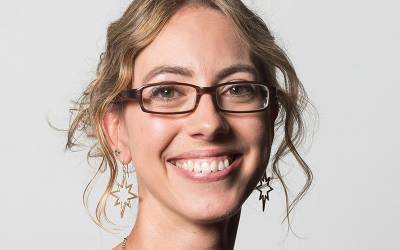Background
The science capital teaching approach was co-developed by researchers and 43 secondary teachers over four years. This summary presents headline findings from the 2016-17 implementation of the approach in schools with low science capital scores across three cities in England.
The evidence base
Surveys with 1,871 students whose teachers either implemented the approach (intervention students) or did not (comparison students).
Regular classroom observations, discussion groups and interviews with 16 intervention classes and teachers over one academic year.
Key findings
Increase in students wanting to study science at A Level
Following one year of implementing the science capital teaching approach, the percentage of students expressing an interest in studying at least one science A level increased significantly.
Percentage of students aiming for one or more science A level
| Before Science Capital Teaching Approach | 16 |
| After Science Capital Teaching Approach | 21.4 |
| Comparison students | 19.5 |
| National average | 23.9 |
Closing the gap: Significant increases in students' science capital
The approach has significantly increased the science capital of students with previous scores considerably below the national average.
Mean science capital scores
| Before Science Capital Teaching Approach | 38.18 |
| After Science Capital Teaching Approach | 40.8 |
| Comparison students | 40.58 |
| National average | 43.65 |
Improved student science attitudes
Implementing the approach has led to students seeing science as more relevant to their lives.
Percentage agreeing with statement 'science lessons relate to my life'
| Before Science Capital Teaching Approach | 27 |
| After Science Capital Teaching Approach | 42.2 |
Reduction in non-participation in science outside of school
Following the intervention year, students are less likely to report 'never' taking part in science activities outside of school.
Percentage of students never doing out of school science activities
'Never talk with others'
| Before Science Capital Teaching Approach | 42 |
| After Science Capital Teaching Approach | 33 |
'Never engage with science online'
| Before Science Capital Teaching Approach | 40 |
| After Science Capital Teaching Approach | 33 |
'Never go on nature walk'
| Before Science Capital Teaching Approach | 36 |
| After Science Capital Teaching Approach | 27 |
More inclusive classroom participation
Teachers and students report wider participation and engagement in classes, including improved participation among quiet and/or previously disengaged students.
Changing teaching practice
Participating teachers' practice changed significantly in line with the ethos of the approach.
Percentage of students who report that their teachers ask about their experiences and ideas in every lesson
| Before Science Capital Teaching Approach | 17.7 |
| After Science Capital Teaching Approach | 26.2 |
Positive teacher experiences
Teachers are overwhelmingly positive about the approach - it has generated positive changes in their professional identities and sense of purpose. The approach has provided space for reflection and given them agency. Almost all have cascaded the approach to colleagues and departments.
 Close
Close


